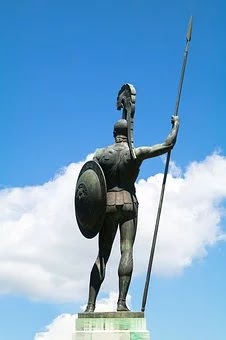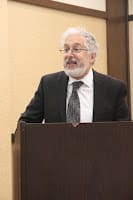I began this sermon by playing the song below:
The Sun Will Come Out Tomorrow from the play “Annie”
According to the Talmud, whether the sun would come out tomorrow was a real concern of the very first human being. “When Adam, on the day of his creation, saw the setting of the sun he said, ‘Alas, it is because I have sinned that the world around me is becoming dark; the universe will now become again void and without form – this then is the death to which I have been sentenced from Heaven for eating of the Tree of Knowledge of Good and Evil’. So Adam sat up all night fasting and weeping and Eve was weeping opposite him. When however dawn broke, he said, `I understand, “This is the usual course of the world.'” (Avodah Zarah 8a)
It is no coincidence that Chanukah is celebrated at the darkest time of the year. It also is always celebrated around the time we read Parasah Miketz in our synagogues. In Parasha Miketz we find Joseph in prison in Egypt for 12 long years. He was sold by his brothers into slavery when he was 17 years old – he is now a young man of 30. He dwells in the darkness of a prison cell. But Joseph never gives up hope. Placing his trust in G-d, he is suddenly freed and is thrust from darkness to light.
Perhaps the words left on another prison wall, of sorts, on a cellar wall in Cologne, Germany by Jews in hiding during the Holocaust, best expresses the thought. “I believe in the sun even when it is not shining, I believe in love even when I am alone, I believe in God even when He is hiding.” When everything is dark, we can rely on our faith in G-d that the sun will shine again.
The person who penned those words on the cellar wall would perhaps not be surprised to read that a few days ago Berlin Mayor Michael Müller, German Justice Minister Heiko Maas and Israeli Ambassador to Germany Jeremy Issacharoff stood together to light the first candle of Europe’s largest Hanukkah menorah at The Brandenburg Gate in Berlin. The Brandenburg Gate, which had once been used as a symbol by the Nazi party. The Brandenburg Gate, where West Germans had once gathered to protest the Soviet building of the Berlin Wall, the symbol of the iron curtain behind which millions were deprived of their freedom. The Brandenburg Gate, where President Reagan addressed these words in 1987 to the General Secretary of the Soviet Union, Mikhael Gorbachev, “If you seek peace, if you seek prosperity for the Soviet Union and Eastern Europe, if you seek liberalization: Come here to this gate! Mr. Gorbachev, open this gate! Mr. Gorbachev, tear down this wall!” Is there a more fitting place for the Menorah, the symbol of freedom, to be lit than at the Brandenburg Gate in Germany?
Each night of Chanukah we light one more candle on our Menorahs. Each night, the light grows and the darkness diminishes. Chanukah is a holiday of hope – lighting the Menorah an expression of our faith that even in the darkest of times, the sun will come out tomorrow.


